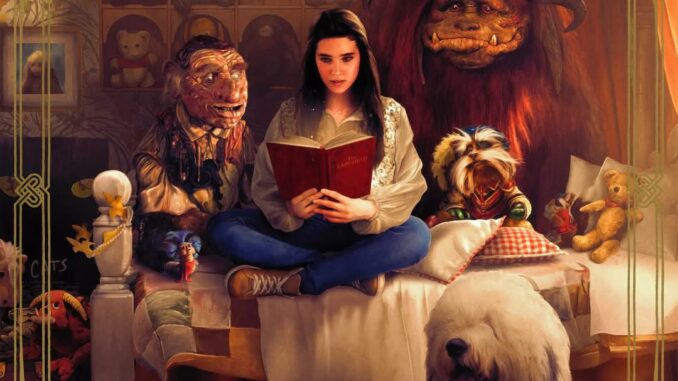
In a recent interview, acclaimed artist Kevin Wilson expressed his disappointment over Netflix’s decision to reproduce the beloved classic Labyrinth. Known for his outspoken views on artistic integrity, Wilson did not hold back, stating, “It is quite sad that our classics are all being reproduced because the original producers have sold off their dignity.” His words echo a growing frustration among fans and creators who feel that modern reboots often lack the soul of the originals.
Wilson lamented the trend of studios mining nostalgia for profit rather than fostering original storytelling. “There’s a difference between honoring a classic and exploiting it,” he said. “When you remake something as iconic as Labyrinth, you’re not just retelling a story—you’re tampering with a piece of cultural history.” His concerns resonate with many who fear that constant reboots dilute the magic of the films that shaped generations.
The original Labyrinth, released in 1986 and starring David Bowie, has long been celebrated for its imaginative storytelling, puppetry, and musical brilliance. Wilson argues that its charm lies in its originality—a quality he believes modern reproductions often lack. “The industry is so focused on recycling old ideas that it’s starving new ones,” he remarked. “Why can’t we invest in fresh voices instead of rehashing what’s already been done?”
Netflix’s decision to revisit Labyrinth is part of a larger pattern in Hollywood, where remakes, sequels, and spin-offs dominate production slates. Wilson sees this as a symptom of creative bankruptcy. “It’s not just about Labyrinth—it’s about the message we’re sending when we prioritize profit over artistry,” he said. “Originality is being sidelined, and that’s dangerous for the future of film.”
While some argue that remakes introduce classics to new audiences, Wilson counters that there are other ways to preserve and celebrate legacy films. “Restorations, retrospectives, even companion pieces—there are so many ways to honor the past without rewriting it,” he explained. “A straight reproduction feels lazy, like they’re banking on name recognition alone.”
Wilson also touched on the broader implications of this trend, suggesting that it reflects a cultural reluctance to take risks. “Art should challenge us, not just comfort us with familiarity,” he said. “When every other film is a remake, it sends the message that audiences don’t want anything new—and I refuse to believe that’s true.”
The artist acknowledged that not all remakes are inherently bad, citing a few rare examples where reinterpretations added value. “But those are exceptions, not the rule,” he clarified. “Most of the time, these projects feel like cash grabs, not labors of love.” He urged filmmakers to ask themselves whether their work contributes something meaningful or simply capitalizes on nostalgia.
For Wilson, the issue goes beyond Labyrinth—it’s about protecting the integrity of art itself. “When we allow classics to be endlessly reproduced, we risk reducing them to commodities,” he said. “These stories deserve more than that. They deserve to be remembered as they were, not as some diluted version.”
Despite his criticisms, Wilson remains hopeful that audiences will demand better. “People are smarter than studios give them credit for,” he said. “If we keep supporting original stories, the industry will have no choice but to listen.” He encouraged fans to seek out independent films and emerging artists who are pushing boundaries.
In closing, Wilson reiterated his belief in the power of originality. “Art thrives on innovation, not repetition,” he said. “I hope one day we’ll look back on this era of endless remakes and realize how much we stifled creativity in the name of profit.” His words serve as a poignant reminder of what’s at stake when classics are endlessly reproduced.
As the debate over Netflix’s Labyrinth continues, Wilson’s perspective offers a compelling critique of modern Hollywood. Whether audiences agree or not, his call for greater artistic courage is one that deserves consideration. After all, as he put it, “The best way to honor the past is to create a future worth remembering.”
Leave a Reply